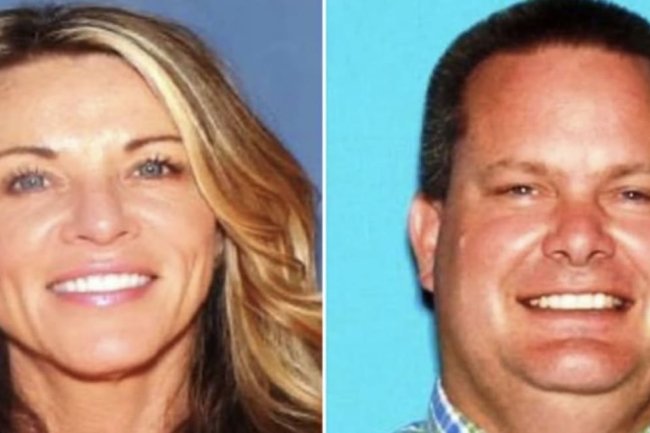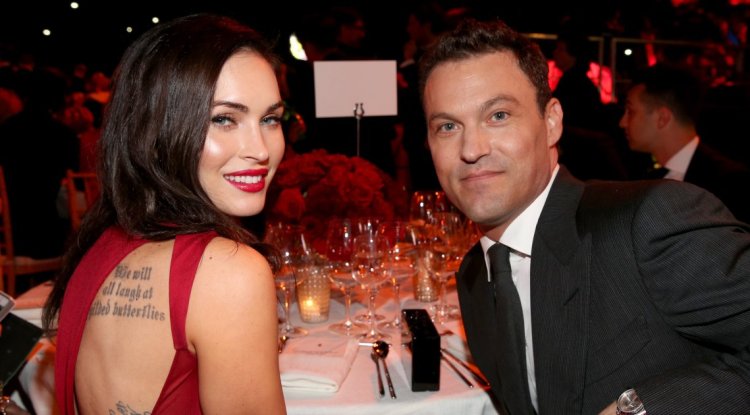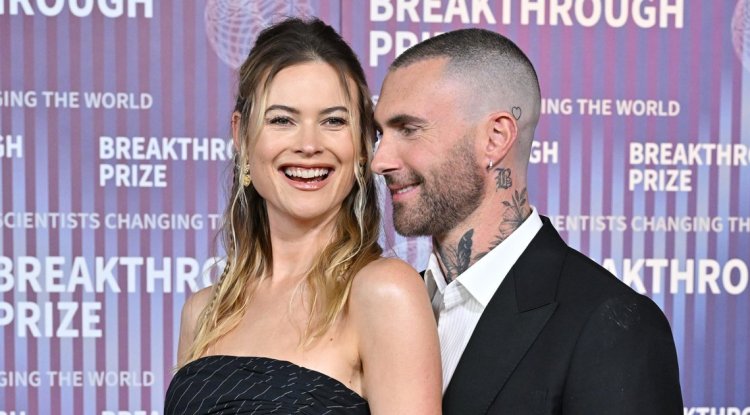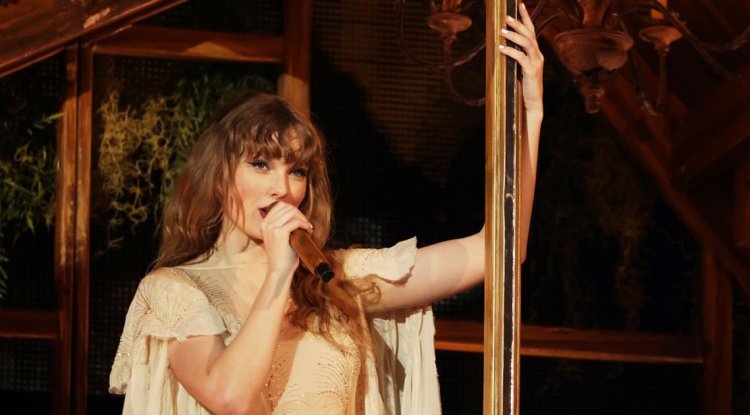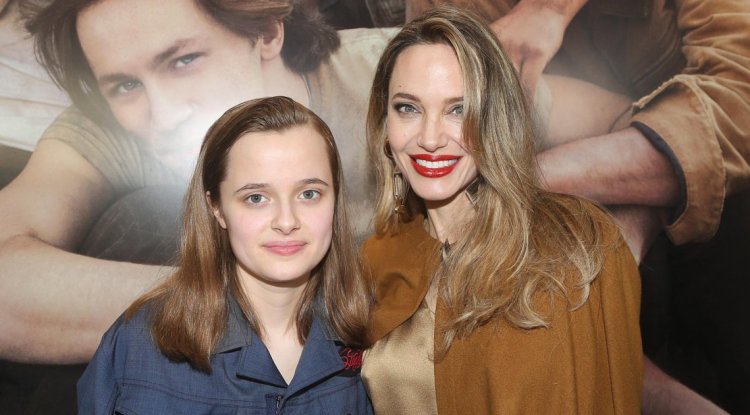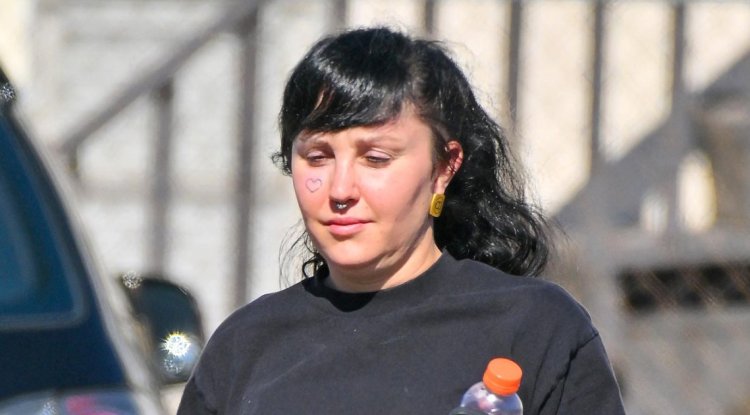Ukraine and Russia agree on one thing: The U.N. is a mess.
NEW YORK — Ukrainian President Volodymyr Zelenskyy, facing a relentless Russian war, questioned the very point of the United Nations on Wednesday. Not long after, Russia’s top diplomat offered a similar criticism. Both Zelenskyy and Sergey Lavrov appeared in person at a tense special session of the U.N.’s most powerful body, the Security Council, in New York. Their complaints about the use and abuse of the United Nations are sure to find sympathy among many countries that have tried to stay neutral in the war — countries that Ukraine and Russia are trying to court to their side. In fact, other nations in attendance also used the moment to air their frustrations, not just with the war, but also with the United Nations and alleged violations of its principles. Speakers included a parade of world leaders and top diplomats, including Secretary of State Antony Blinken. Zelenskyy, dressed in his standard green military fatigues, decried Russian atrocities in the war and spoke of the sacrific
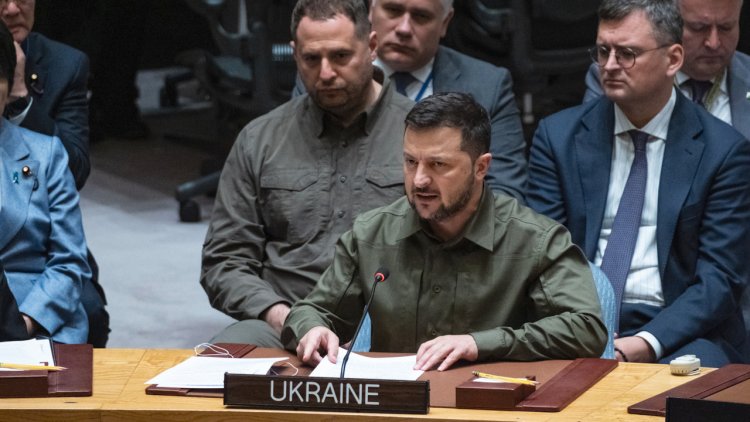
NEW YORK — Ukrainian President Volodymyr Zelenskyy, facing a relentless Russian war, questioned the very point of the United Nations on Wednesday. Not long after, Russia’s top diplomat offered a similar criticism.
Both Zelenskyy and Sergey Lavrov appeared in person at a tense special session of the U.N.’s most powerful body, the Security Council, in New York. Their complaints about the use and abuse of the United Nations are sure to find sympathy among many countries that have tried to stay neutral in the war — countries that Ukraine and Russia are trying to court to their side.
In fact, other nations in attendance also used the moment to air their frustrations, not just with the war, but also with the United Nations and alleged violations of its principles. Speakers included a parade of world leaders and top diplomats, including Secretary of State Antony Blinken.
Zelenskyy, dressed in his standard green military fatigues, decried Russian atrocities in the war and spoke of the sacrifices Ukrainians have made in defending their sovereignty since the Kremlin’s full-scale invasion in February 2022. He urged support for a 10-point Ukrainian peace proposal.
But he reserved his sharpest words for the Security Council, urging U.N. members to suspend Russia’s veto power as a permanent member of the 15-nation body. He called for much bigger reforms as well, including better representation of countries from Africa, the Pacific and beyond — appeals that were echoed by some fellow speakers.
“Ukrainian soldiers now are doing at the expense of their blood what the U.N. Security Council should do by its voting. They’re stopping aggression and upholding the principles of the U.N. Charter,” Zelenskyy said.
He added that “547 days of full-fledged Russian aggression means 547 reasons for changes in this chamber.”
Lavrov, who avoided a face-to-face encounter with Zelenskyy by appearing after the Ukrainian had left, trashed other countries’ alleged failure to uphold U.N. values, such as not interfering in a nation’s internal affairs. His targets appeared to primarily be the United States and Europe.
“Today, the West turns selectively to norms and principles on a case-by-case basis exclusively based on their parochial geopolitical needs,” Lavrov said. “This has resulted in a shaking of global stability.”
He added: "The Russian Federation has, and continues to insist on all provisions of the United Nations Charter being respected and applied not selectively, but fully in their full and interconnected way."
The Security Council session was one of the most dramatic events of this year’s U.N. General Assembly’s gathering of world leaders, the first Zelenskyy attended in person since Russia’s 2022 invasion.
The United States is itself pushing for reforms to the Security Council, including expanding it in ways that are more inclusive of nations with smaller economies. Blinken used his time at the mic to slam Russia for ignoring basic U.N. principles and flouting U.N. resolutions.
“Russia's invasion itself violates the central pillar of the U.N. Charter: respect for the sovereignty and territorial integrity of all nations,” Blinken said.
Lavrov, meanwhile, alleged that “the U.S. and its allies are openly and unceremoniously trying to privatize the secretariat of the U.N.” in ways that hurt countries which are “inconvenient to Washington.”
During the speeches, Russia’s delegates offered little emotional response. Russia’s ambassador to the United Nations, Vassily Nebenzia, appeared to be texting as Zelenskyy spoke and only one Russian diplomat could be seen at the country’s desk during most of the other speeches, staring blankly into space.
When Lavrov took his seat during Blinken’s speech, he spent much of the time writing on a pad with little discernible reaction. Ukraine returned the favor; its singular delegate at the table could be seen texting during Lavrov’s remarks.
Several others who spoke at Wednesday’s session expressed their deep frustration with Russian actions — or inactions — at the United Nations, but seemed unable to muster much beyond despair given the low likelihood of changes anytime soon at the Security Council or broader U.N. system.
The fact that the United States, Russia and Russia’s supporter, China, are permanent, veto-wielding members of the Security Council and are often at odds makes any change to the U.N. system hard to push through.
"Abuse of the veto power … cannot be accepted by the international community," Japanese Prime Minister Fumio Kishida warned.
Several speakers pointed to the global effect of the war on food supplies, disruptions to the energy sector and nuclear security.
Even Chinese executive vice minister of foreign affairs Ma Zhaoxu highlighted how developing nations are the “first to bear the brunt” of what he repeatedly termed the “Ukraine crisis.”
“The Ukraine crisis has become what it is today for a variety of deep and complex reasons,” Ma said. “A prolonged and expanded Ukraine crisis is in no one's interest.”
But in a dig at the United States and Europe, Ma also warned countries to “stop abusing unilateral sanctions.”
German Chancellor Olaf Scholz, meanwhile, put the blame squarely on Russia.
“Some argue that this war could have been prevented by diplomatic means,” Scholz said, detailing hundreds of meetings since 2014 to find a diplomatic solution. “All these endeavors failed because one party, Russia, chose war over diplomacy.”
Security Council gatherings tend to be relatively staid affairs. They rarely devolve into shouting, but the words can be sharp, the tension thick and procedure used as a weapon.
At the start of Wednesday’s meeting, Nebenzia raised procedural objections, questioning why Zelenskyy was given a speaking slot so early in the session, predicting the whole event would be a “spectacle.”
Albanian Prime Minister Edi Rama, who was chairing the meeting because his country is the president of the Security Council this month, shot back at Nebenzia that the decision was within normal bounds.
“You stop the war, and President Zelenskyy will not take the floor,” Rama said.
What's Your Reaction?










